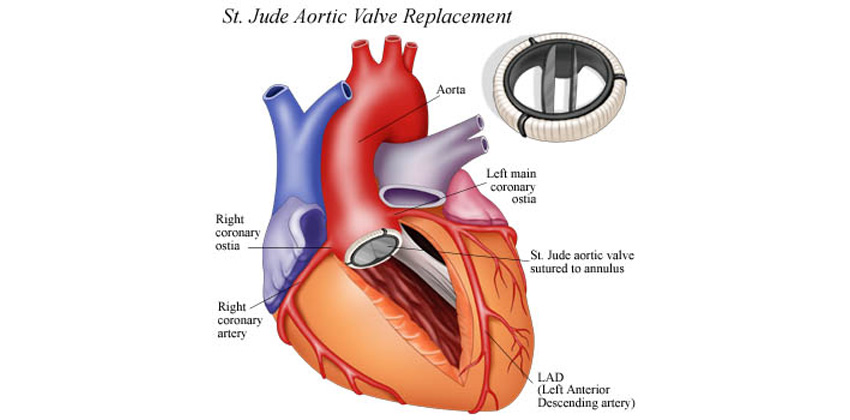Heart valve replacement:
Valve replacement surgery is the procedure in which your diseased valve is removed and a new valve is inserted in its place. During heart valve surgery, one or more valves may be replaced.
There are two options to replace a diseased valve.
- Mechanical valves are created mostly from metal material. Lifetime therapy with an anticoagulant (sometimes called a “blood thinner”) is needed when these types of valves are used. This medication prevents blood clots from forming on or around the valve.
- Biological valves are taken from pig, cow, or human donors. These valves don’t last as long as mechanical valves. But when tissue valves are used, long-term use of an anticoagulant often is not needed.
You decide based on your doctor advice and facts which type of valve is best for you. Factors weighed include your age, your occupation, the size of your valve, how well your heart is working, your heart’s rhythm, your ability to take an anticoagulant, and how many new valves you need.
AORTIC VALVE REPLACEMENT is heart surgery performed to replace a malfunctioning aortic valve, due to narrowing (stenosis) or leakage (regurgitation). The aortic valve can malfunction because of a congenital abnormality (abnormal from birth) or an acquired disease (diseased with age).
The valve replacement surgery can also be done by Minimally Invasive procedure depending on patient’s indications. Heart Valve Surgery is the most common Minimally Invasive procedure in Cardiac surgery. In this procedure valve replacement performed through smaller incisions. This type of surgery reduces blood loss, trauma, and length of hospital stay. The surgeon will review the diagnostic tests of the patient prior the surgery to see if the patient is a candidate for Minimally Invasive Surgery.





